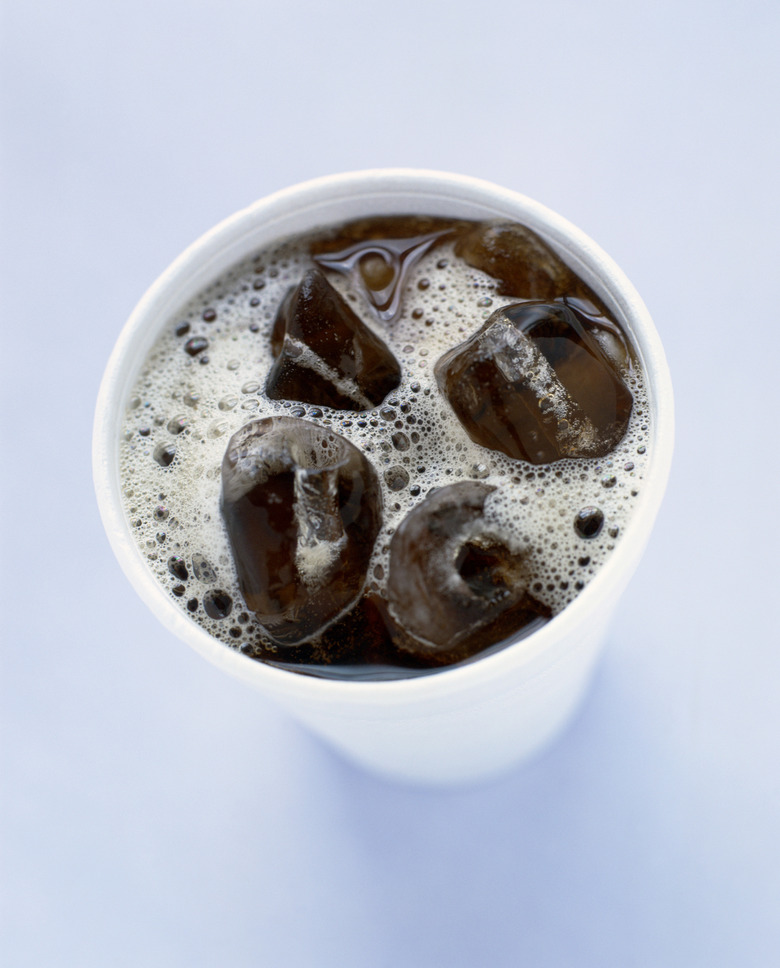If Something Fizzes Does It Mean That It Is Giving Off A Gas?
Fizzing usually refers to gaseous carbon dioxide, but it can refer generally to the presence of any gas. The molecules of that gas may or may not have been present in a substance before the fizzing. In the case of a physical change, the constituent compounds are already present, but they get rearranged. In the case of a chemical change, the atoms are reconfigured to create new chemical compounds.
Physical Changes
Physical Changes
The fizzing of soda is a physical change that involves the release of gaseous carbon dioxide. During fizzing of a soda, you can see bubbles of carbon dioxide in the soda rise to the top. A bottle of soda doesn't fizz when it is closed because the pressure is higher, and keeps the carbon dioxide dissolved in the liquid.
Chemical Changes
Chemical Changes
Sometimes fizzing signifies both the creation and release of carbon dioxide. For example, if you combine baking soda and vinegar, you will see fizzing. This happens because carbon dioxide is created in the chemical reaction between these two substances. The atoms in the baking soda and vinegar break their bonds and recombine to form gaseous carbon dioxide and other substances.
Cite This Article
MLA
Murmson, Serm. "If Something Fizzes Does It Mean That It Is Giving Off A Gas?" sciencing.com, https://www.sciencing.com/something-fizzes-mean-giving-off-gas-8617/. 24 April 2017.
APA
Murmson, Serm. (2017, April 24). If Something Fizzes Does It Mean That It Is Giving Off A Gas?. sciencing.com. Retrieved from https://www.sciencing.com/something-fizzes-mean-giving-off-gas-8617/
Chicago
Murmson, Serm. If Something Fizzes Does It Mean That It Is Giving Off A Gas? last modified March 24, 2022. https://www.sciencing.com/something-fizzes-mean-giving-off-gas-8617/
